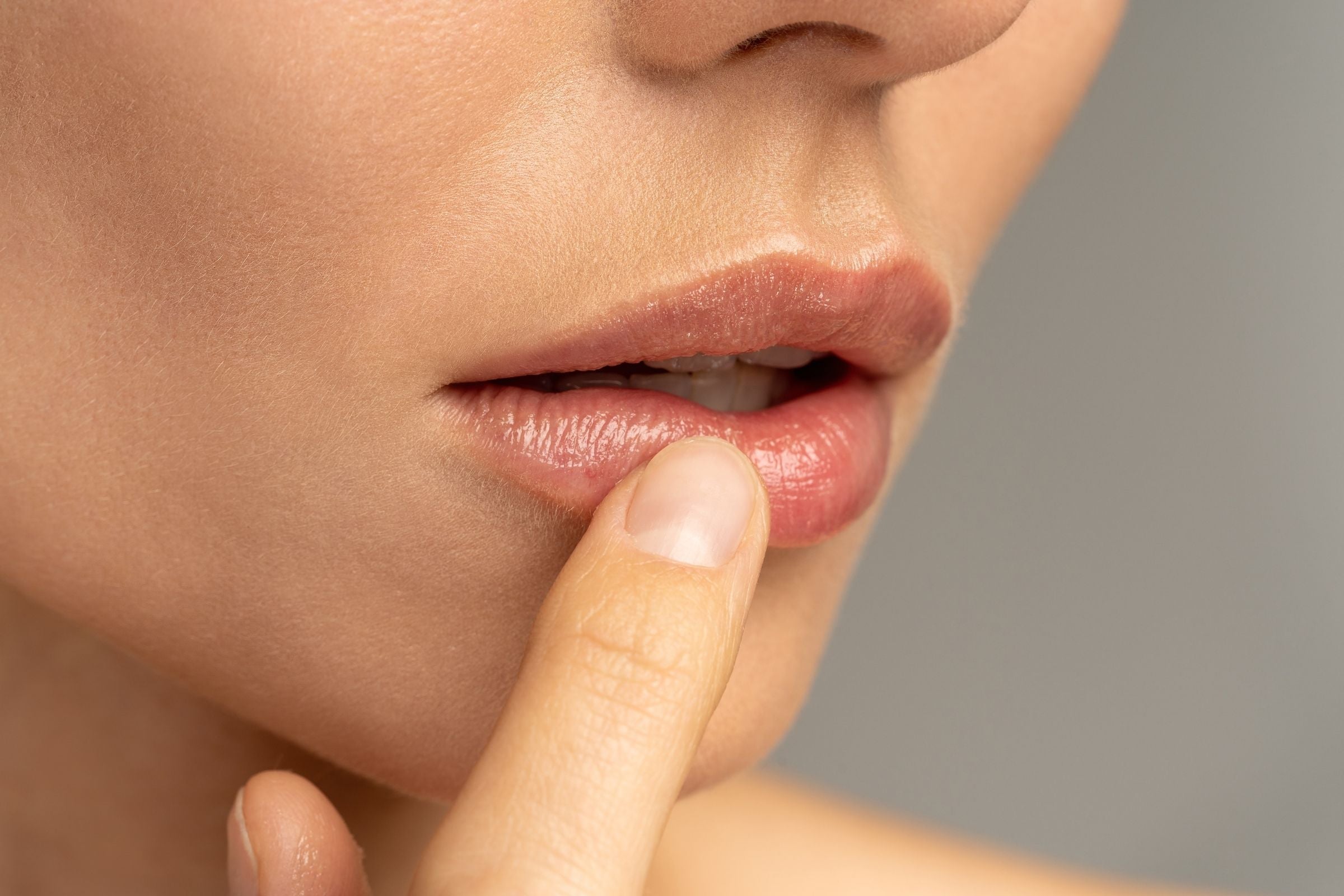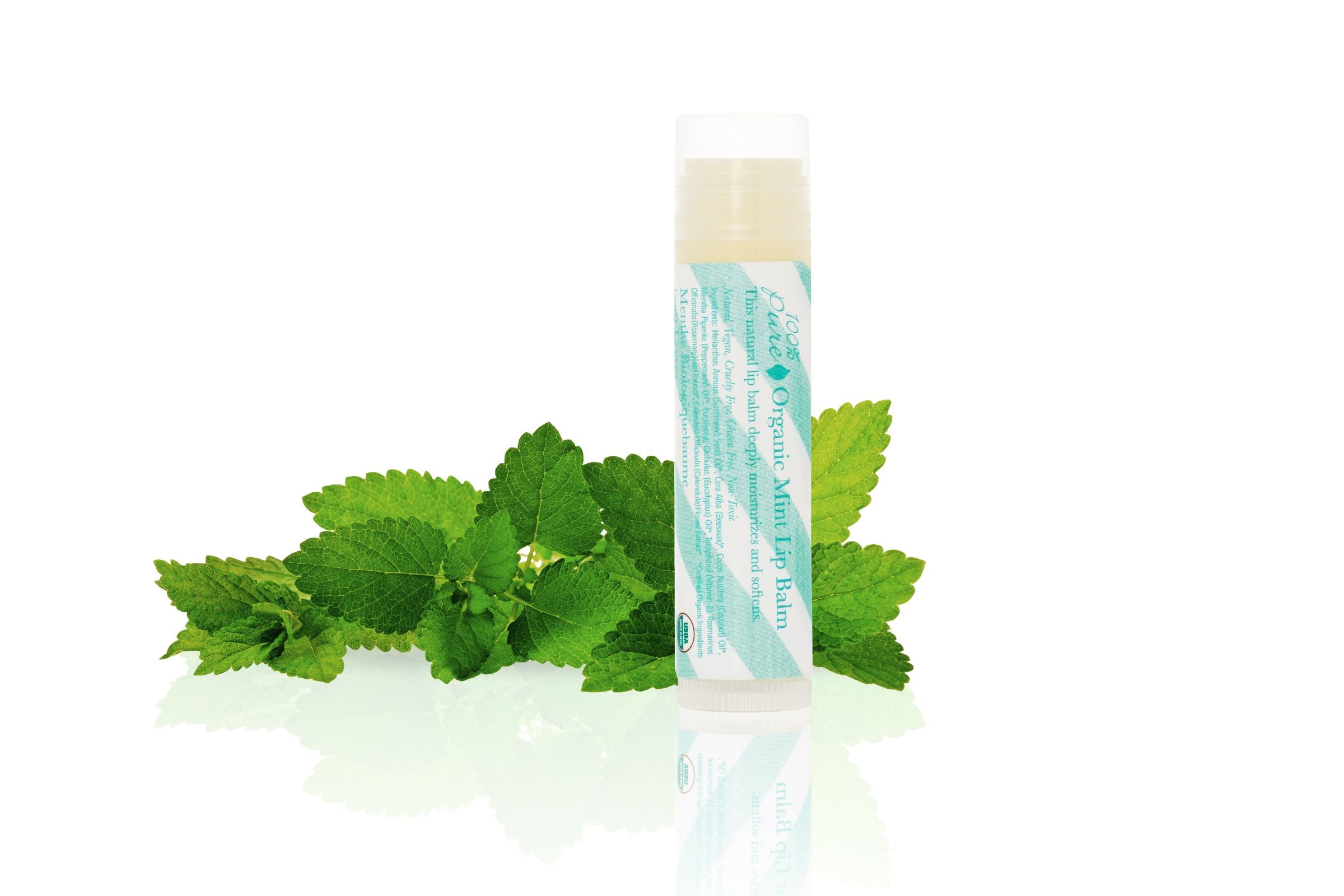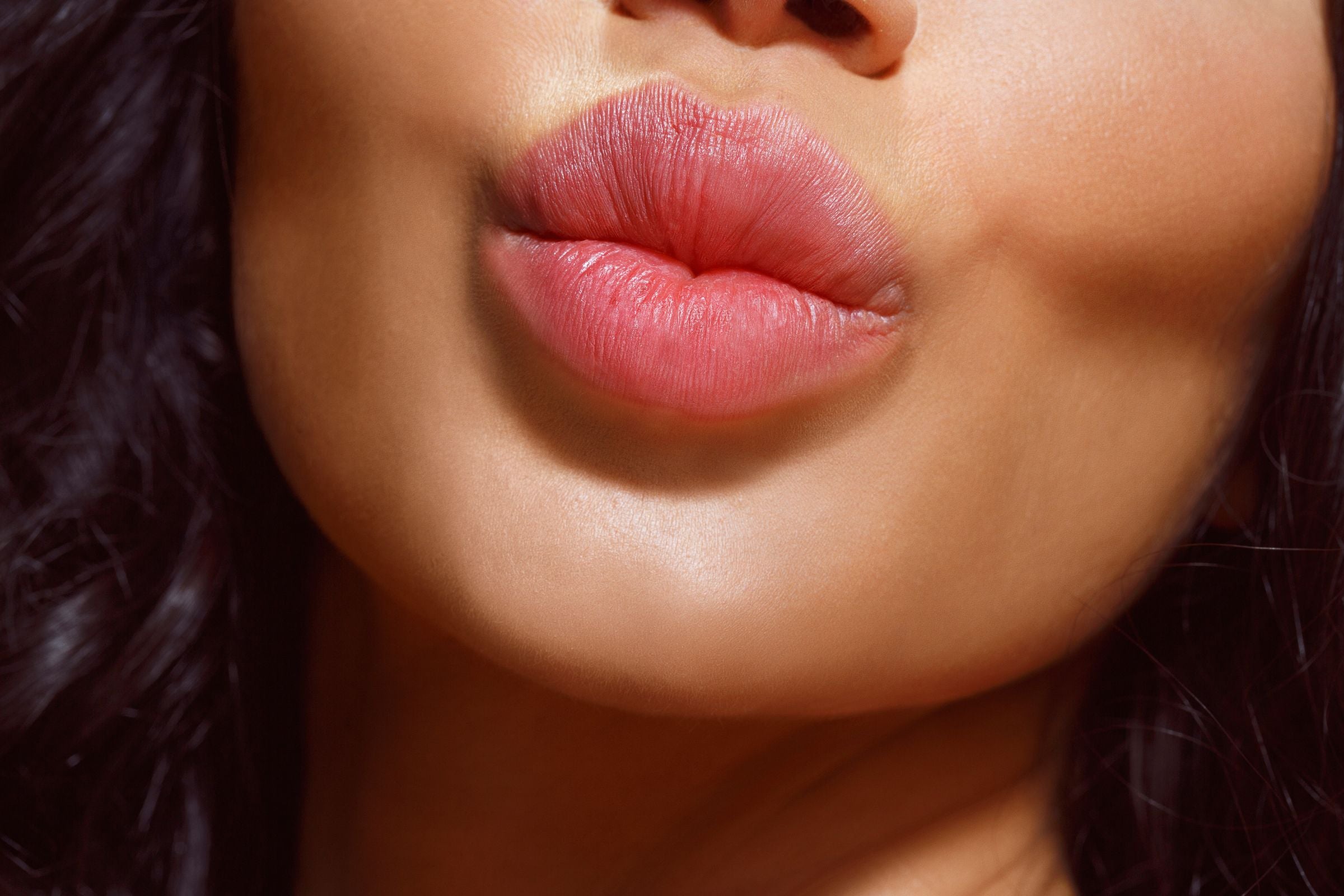Kiss Chapped Lips Goodbye!
Written by: 100% PURE®
In today's beauty routine, lip care is often overlooked, but it plays a crucial role in maintaining a polished and healthy appearance. While synthetic lip products may provide temporary relief, they often come with downsides like chemicals and potential harm to our delicate lips.
So, let's delve into the world of natural lip care and discover a healthier, more sustainable approach to nurturing our precious pouts.
The skin on our lips is exceptionally delicate and thin compared to the rest of our body. It lacks our skin's protective outer layer, making it more susceptible to damage. Lips also have fewer oil glands, which means they can easily become dry and lack proper moisture retention. The sensitivity of lip skin necessitates special care to keep them soft and healthy.
Dryness, chapping, and peeling are frequent issues that afflict our lips. These problems can be caused by various factors, including exposure to harsh weather conditions, dehydration, or using low-quality lip products. Dry, chapped lips can be uncomfortable and unattractive. In severe cases, they may even lead to painful cracks and bleeding. Understanding how to prevent and address these common lip woes is essential for maintaining beautiful and healthy lips.

Many commercial lip balms contain petroleum-based ingredients like paraffin or mineral oil. While they may offer temporary relief, they can create a cycle of dependency, as they don't truly moisturize. Moreover, synthetic additives like artificial fragrances and dyes can irritate sensitive lips. There are concerns about long-term effects, including potential toxicity. Opting for natural lip balms helps steer clear of these potential perils.
Natural lip balms are formulated with ingredients derived from nature, such as beeswax, shea butter, coconut oil, and essential oils. These components provide genuine nourishment, hydration, and protection for your lips. They often include vitamins and antioxidants that promote lip health.
Natural lip balms can soothe, repair, and revitalize your lips in a way synthetic products simply cannot, making them a wiser choice for maintaining soft, healthy lips. Here let’s take a closer look at the star ingredients of 100% Pure natural lip balms:
Beeswax
Beeswax acts as a natural sealant, forming a protective barrier on your lips to lock in moisture. It prevents dehydration and keeps your lips soft and supple, making it a key ingredient in many natural lip balms.
Calendula
Calendula, derived from marigold flowers, offers deep hydration and aids in skin repair. It soothes chapped or damaged lips, helping them heal and restoring their natural beauty.
Coconut Oil
Coconut oil is rich in nourishing fatty acids that provide intense moisture. It helps prevent dryness, peeling, and chapping, leaving your lips feeling silky smooth.
Vitamin E
Vitamin E is renowned for its antioxidant properties, which protect your lips from environmental stressors like UV rays and pollution. It helps maintain the youthful appearance of your lips and prevents premature aging.
Essential Oils
Essential oils not only add delightful natural fragrances but also offer extra benefits. For example, peppermint essential oil can provide a cooling sensation, while lavender oil may soothe and calm your lips. These oils enhance the overall experience and therapeutic qualities of natural lip balms.
Newsletter Subscribe
for more blog updates and exclusive discounts

100% PURE prides itself on exclusively utilizing organic ingredients in its lip balms, ensuring that only the purest and most environmentally responsible sources are incorporated. Their unwavering commitment to high-quality, natural components guarantees that their lip balms are not only effective but also free from harmful additives.
Ingredients: Calendula, organic coconut oil, organic peppermint oil
Benefits: Beeswax locks in moisture, coconut oil nourishes with fatty acids, and peppermint oil imparts a refreshing tingle. It's a must-try for natural beauty enthusiasts seeking hydration, minty freshness, and organic purity.
Ingredients: Sunflower seed oil, calendula, Vitamin E, organic coconut oil
Benefits: The organic beeswax moistens lips, while the cherry flavor adds a delightful aroma. It's a favorite for those looking for natural hydration and a sweet, fruity scent.
Ingredients: Propolis, echinacea, organic lysine, organic lemon balm, organic tea tree oil
Benefits: A blend of natural ingredients like lysine, lemon balm, and tea tree oil helps soothe and heal lips. It's a must-try for its healing properties and herbal infusion, making it perfect for those seeking lip health and nourishment with organic goodness.
To achieve a smoother lipstick application and added hydration, pair your natural lip balm with products like Fruit Pigmented® Cocoa Butter Matte Lipstick or Fruit Pigmented® Pomegranate Oil Anti-Aging Lipstick. Apply lip balm first to create a moisturized canvas for your lipstick, enhancing both its longevity and vibrancy.
Include natural lip balm in your nighttime regimen for optimal lip hydration. Before bed, apply a generous layer of lip balm to lock in moisture. This prevents overnight dryness and ensures you wake up with soft, nourished lips, ready to face the day.
Natural Lip Exfoliation Tips
To maintain smooth and supple lips, exfoliation is key. Create a gentle lip scrub using a mixture of sugar and honey, or try a soft-bristle toothbrush for light exfoliation. This helps remove dead skin cells, leaving your lips refreshed and prepared for lip balm or other lip products.
Why is my lip balm grainy, and is it safe to use?
The grainy texture in lip balm is often due to the crystallization of ingredients, like shea or cocoa butter. It's generally safe to use, but the texture might need to be better. You can remelt and cool it for smoother results.
How often should I reapply natural lip balm?
The frequency of reapplying lip balm varies with personal preference and climate. Usually, you can apply it whenever your lips feel dry or chapped.
Can I use lip balm on other dry patches of skin?
Yes, you can use lip balm on other dry patches of skin in a pinch. The emollient in lip balms can provide a barrier to lock in moisture and help alleviate dryness on areas like elbows, knuckles, or cuticles.
Are there any allergens to look out for in natural lip balms?
Natural lip balms may contain allergens like occlusive ingredients. While they don’t contain synthetic ingredients some individuals can be allergic to even natural substances. This is why it’s best to always check the ingredient list and perform a patch test to see how your skin reacts.
How long do organic lip balms last before expiring?
Organic lip balms typically last for about 1-2 years. However, their shelf life can be influenced by storage conditions, so check for any changes in scent, texture, or color to assess if they've expired.
Natural lip care isn't just about softer, healthier lips; it's a reflection of our commitment to wellness and sustainability. By embracing natural lip balms, we prioritize purity, nourishment, and environmental responsibility. From the gentle ingredients to thoughtful routines and mindful product choices, our approach to lip care mirrors our desire for a more holistic, conscious, and beautiful self. So, let's continue this journey of self-care and embrace the beauty of nature, one lip balm at a time.
- Tags: make up, Makeup, October-2023
We carefully hand-select products based on strict purity standards, and only recommend products we feel meet this criteria. 100% PURE™ may earn a small commission for products purchased through affiliate links.
The information in this article is for educational use, and not intended to substitute professional medical advice, diagnosis, or treatment and should not be used as such.






